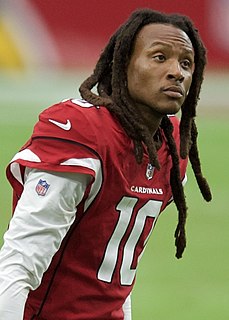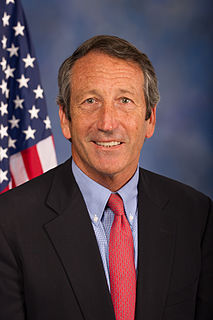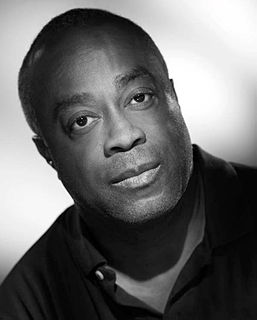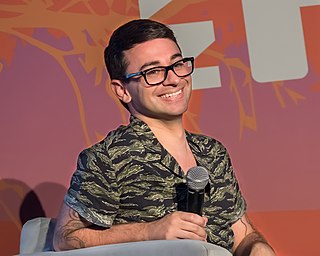A Quote by DeAndre Hopkins
I'm from South Carolina. I'm from a real cultured state, where there's still racism daily. Still, places are segregated.
Related Quotes
I have dear friends in South Carolina, folks who made my life there wonderful and meaningful. Two of my children were born there. South Carolina's governor awarded me the highest award for the arts in the state. I was inducted into the South Carolina Academy of Authors. I have lived and worked among the folks in Sumter, South Carolina, for so many years. South Carolina has been home, and to be honest, it was easier for me to define myself as a South Carolinian than even as an American.
For most Black people there is still poverty and desperation. The Ghettos still exist, and the proportion of Blacks in prison is still much greater than Whites. Today, there is less overt racism, but the economic injustices create an "institutional racism" which exists even while more Blacks are in high places, such as Condoleeza Rice in Bush's Administration and Obama running for President.
South Carolina, as a matter of compromise, displays the Confederate flag on a flagpole in front of the state capitol. Because I grew up in the South and believe that the Confederate flag is a very divisive symbol, I have stated publicly a number of times that I believe that South Carolina should remove the flag from the state capitol grounds.
I grew up in Orangeburg, South Carolina, which has the proud distinction of being the home to two of the eight Historically Black Colleges and Universities in the state: South Carolina State University and Claflin University. When I was a kid riding around town with my grandfather, we often drove by the colleges.
Coming from the South and growing up in L.A. where it was so segregated - worse than the South in many ways - all the people in my neighborhood were from the South. So you had that Southern cultured environment. The church was very important. And there were these folk ways that were there. I was always fascinated by these Southern stories, people would share these mystified experiences of the South. I wanted to talk about folklore.
One consequence of racism and segregation is that many American whites know little or nothing about the daily lives of African Americans. Black America's least-understood communities are those poor, hyper-segregated places we once called ghettos. These neighborhoods are not far away, but they might as well be on the moon.
There are places and spaces for black writers to write about race as a central thing. It's important. We're still dealing with the remnants of slavery. We're still dealing with racism on a daily basis. For me, I choose to write books about black people where we are normal. I was raised to believe that I deserve to be in a room just like anybody else. I try to write books like that.
I think our message,the Clinton campaign was very strong. Remember, this is their fourth campaign in South Carolina. Two for Bill Clinton. Two for Hillary Clinton. They had it well organized. They did well. And Icongratulate them. We came into that state at something like 7 or 8 percent in the polls. It was a tough road for us to hoe. But I want to thank all of our supporters, the members of the South Carolina state legislature.






































